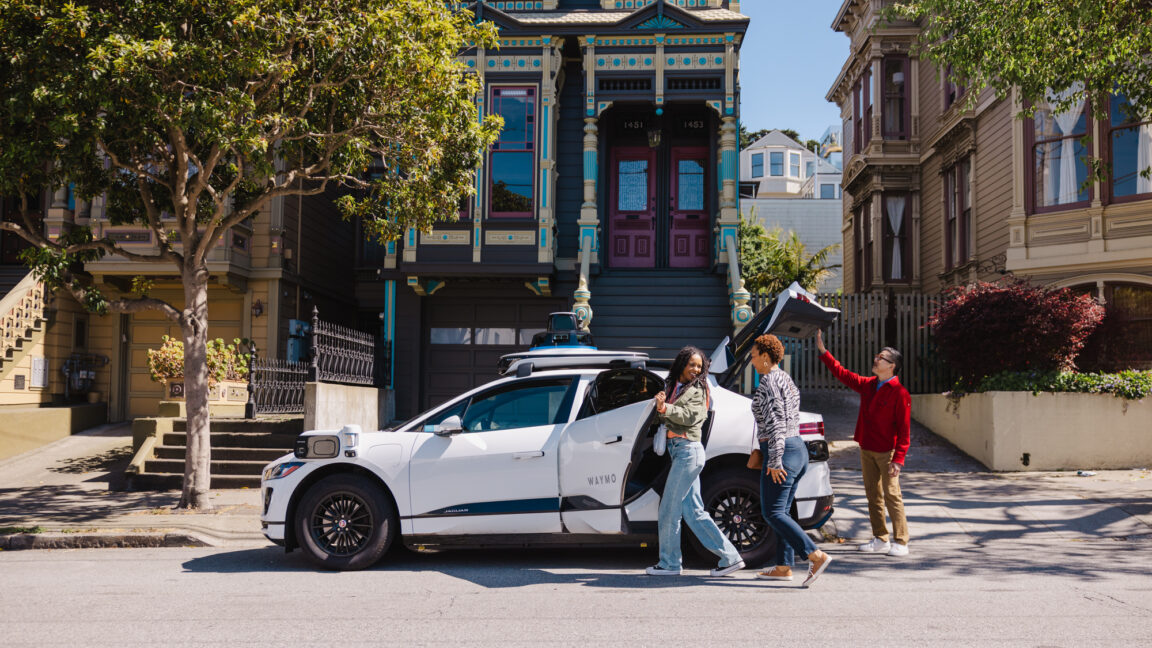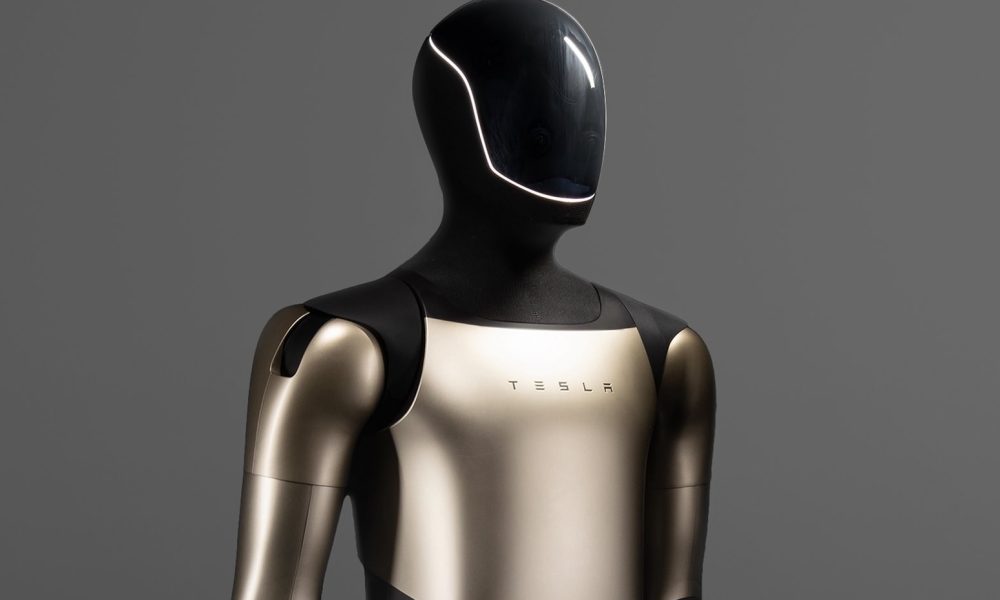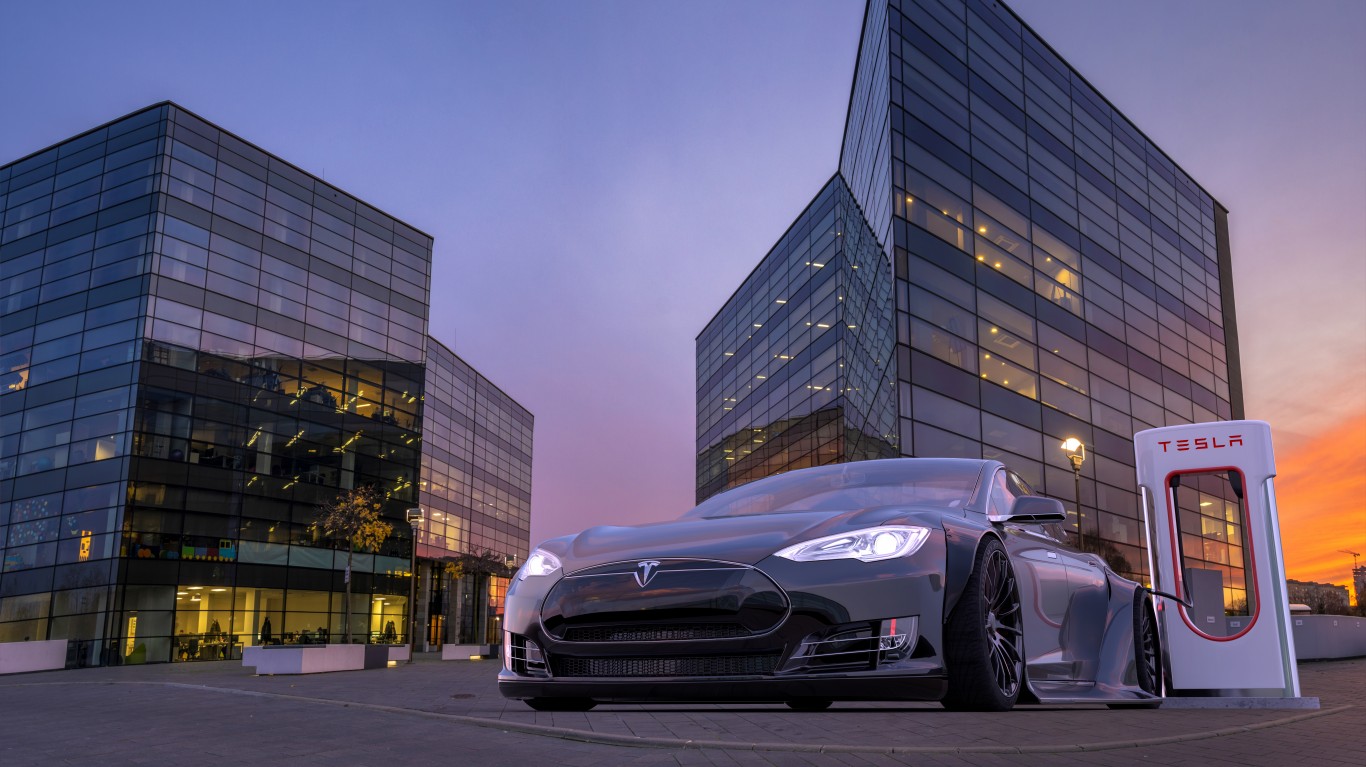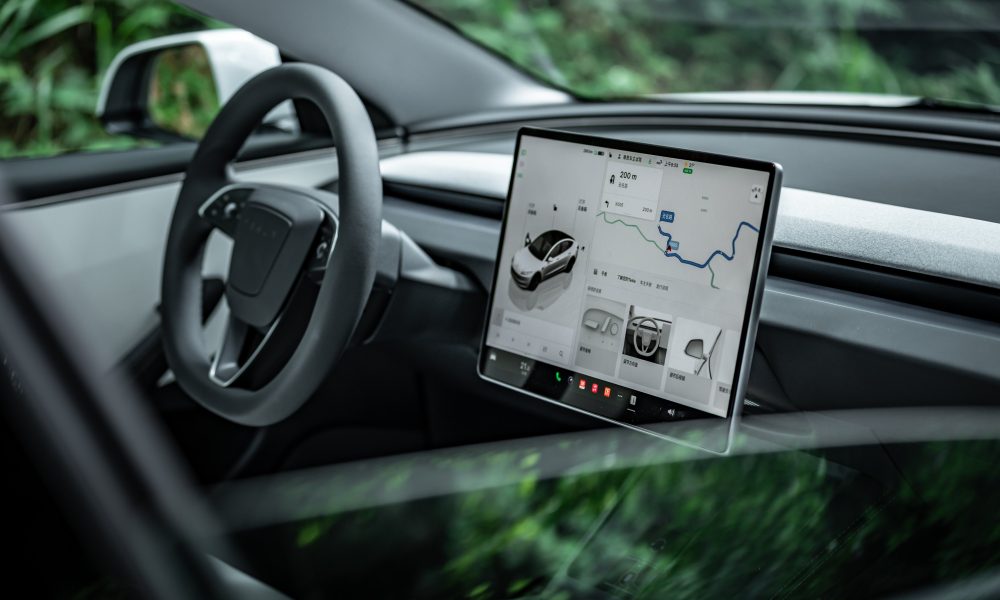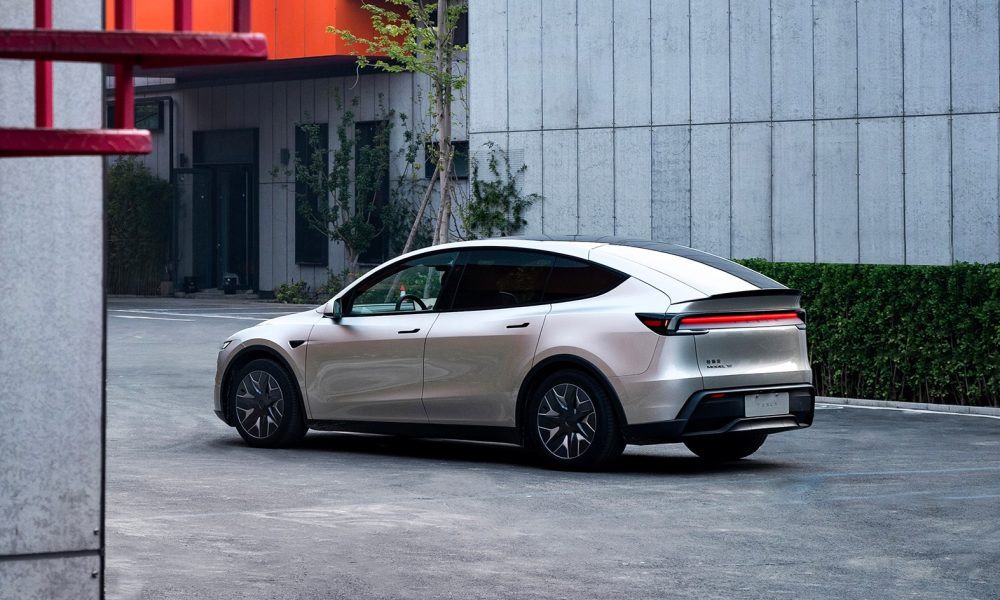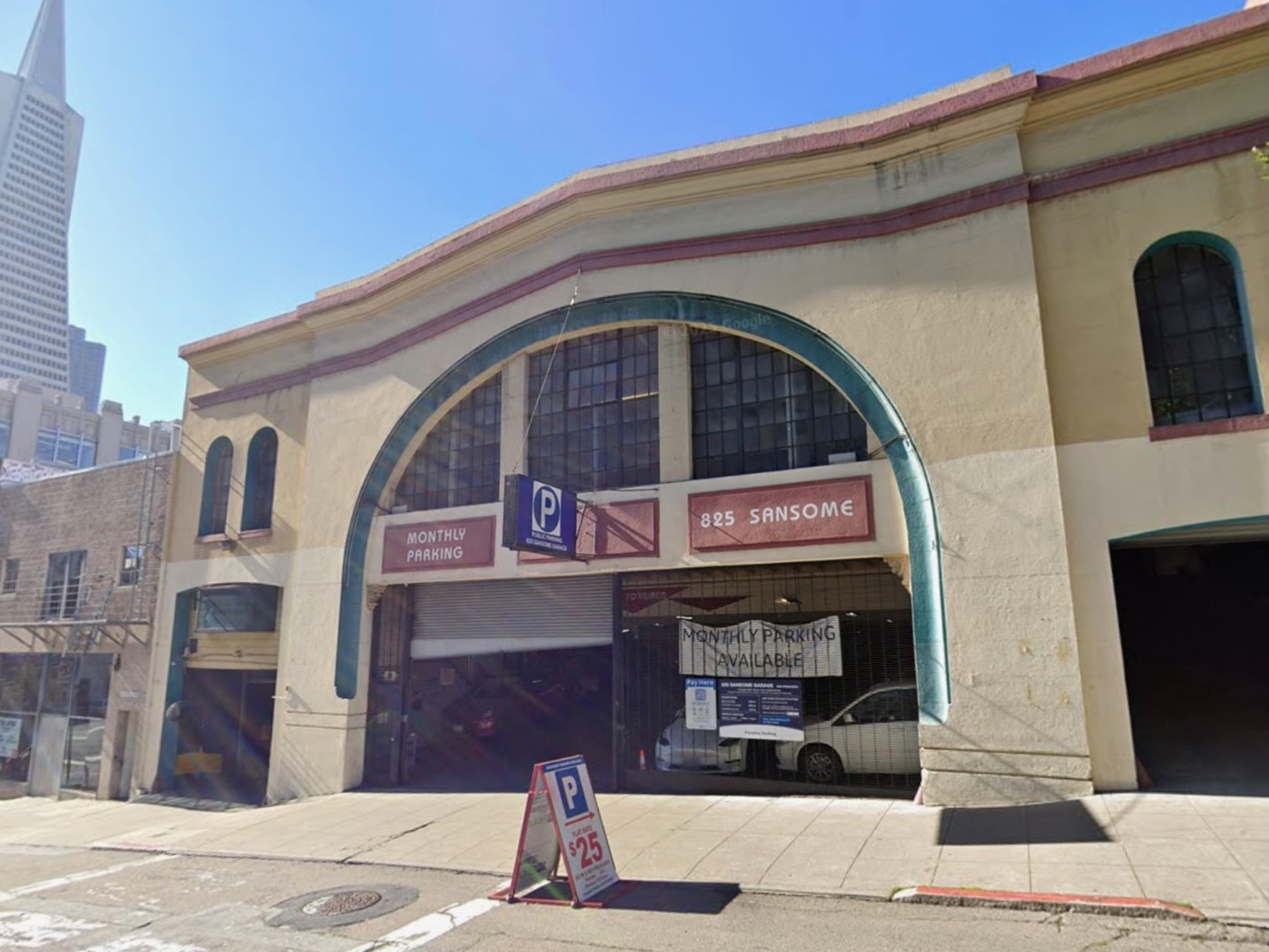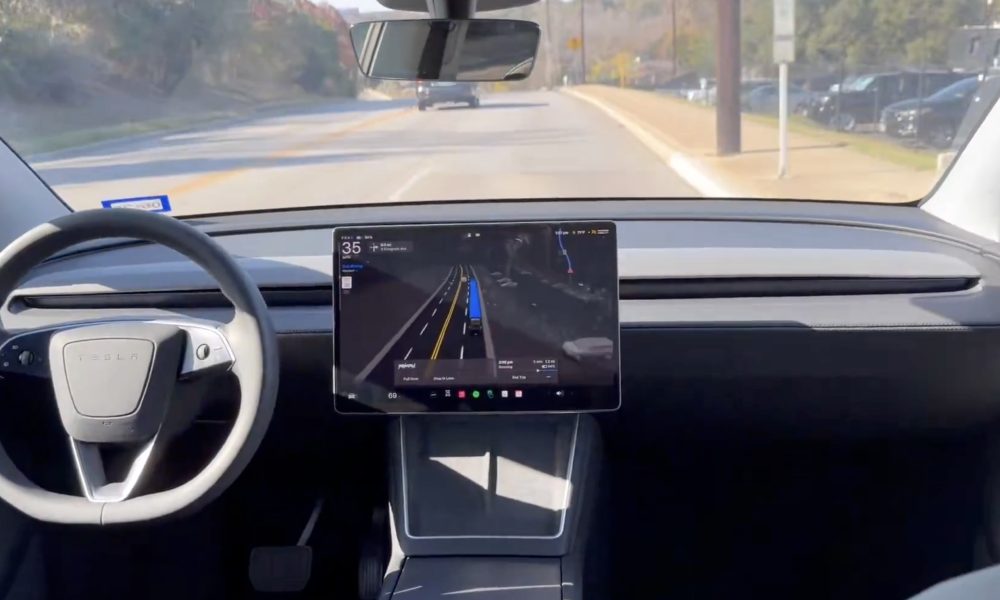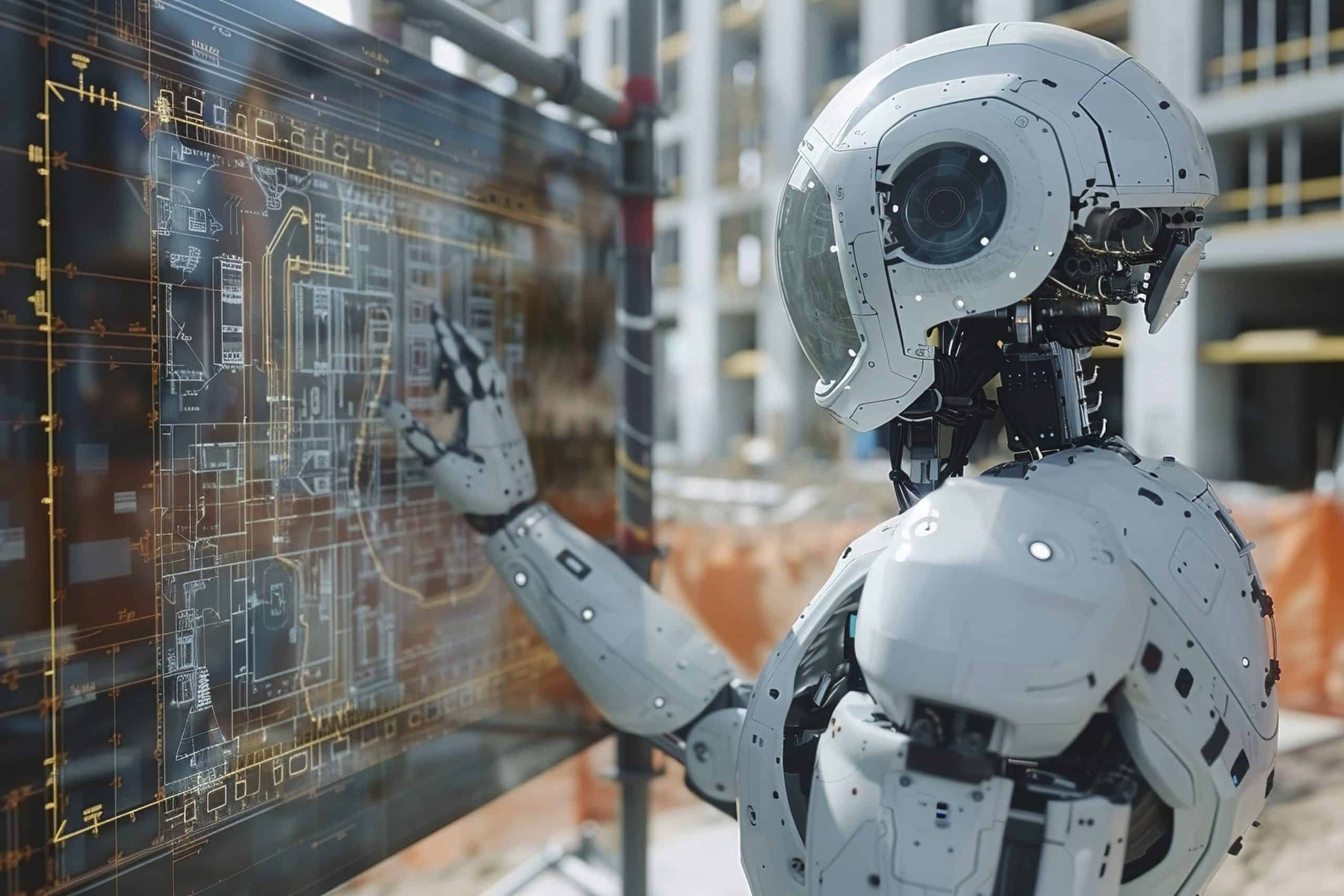#autonomous-vehicles
#autonomous-vehicles
[ follow ]
#waymo #robotaxis #tesla #robotaxi #funding #school-bus-safety #nhtsa-investigation #fundraising #robotics #doordash
fromBusiness Insider
5 days agoWhy Waymo believes robotaxis must be safer than human drivers
If people can drive with their eyes, can an AI drive only with cameras? Tesla leans on that analogy to defend its hotly debated cameras-only approach to autonomous cars. "It should be solved with cameras just like how every other human or animal lives around this world," Ashok Elluswamy, Tesla's vice president of AI, said at the ScaledML Conference on January 29. "Self-driving problem is thought of as a sensor problem. It's actually not a sensor problem, it's an AI problem."
Artificial intelligence
fromABC7 San Francisco
1 week agoTesla, Waymo defend autonomous vehicle safety as Congress weighs federal standards
Roughly half of U.S. states now have their own rules for driverless cars, creating a patchwork of regulations. Lawmakers say that uneven oversight, combined with several high-profile incidents, underscores the need for uniform federal guardrails that don't stifle innovation yet ensure public safety. Senators cite safety issues, demand more transparency "We need more honesty from the industry so that there is in fact transparency in everything that they know that the American public should know as well," said Sen. Ed Markey, D-MA.
US politics
Artificial intelligence
fromSan Jose Spotlight
1 week agoPhilbrick: Is our infrastructure ready for autonomous vehicles? - San Jose Spotlight
Autonomous vehicles promise safer, cleaner mobility but require resilient infrastructure because failures can cause dangerous behavior and undermine public trust amid rapid market growth.
Media industry
fromThe Drum
1 week agoMorning Bulletin: Dawn of self-driving cars, BBC Radio One adopts phone first strategy & Kiefer Sutherland returns to ABC
Major shifts across transportation, media, tech, finance, and politics include rapid autonomous vehicle adoption, platform competition, regulatory and legal challenges, and broadcasting strategy changes.
fromTESLARATI
1 week agoTesla exec pleads for federal framework of autonomy to U.S. Senate Committee
Tesla executive Lars Moravy appeared today in front of the U.S. Senate Commerce Committee to highlight the importance of modernizing autonomy standards by establishing a federal framework that would reward innovation and keep the country on pace with foreign rivals. Moravy, who is Tesla's Vice President of Vehicle Engineering, strongly advocated for Congress to enact a national framework for autonomous vehicle development and deployment, replacing the current patchwork of state-by-state rules.
US politics
fromElite Traveler
1 week agoFuture Car Launches To Have on Your Radar, for 2026 and Beyond
As we look toward 2026 and beyond, manufacturers are reinventing everything from compact city EVs and high-performance electric sports cars to luxury SUVs with advanced driver interfaces and even autonomous vehicles that blur the line between car and tech device. Just as we keep a watchful eye on the most anticipated hotel openings each year, discerning drivers and enthusiasts now watch the calendar for the next wave of future cars - vehicles that promise to redefine performance, design, and how we think about personal mobility.
Cars
fromFuturism
2 weeks agoPeople on Polymarket Are Making a Fortune by Betting Against Elon Musk's Famously Worthless Promises
Tesla CEO and billionaire Elon Musk has long garnered a reputation for being massively wrong in his promises and predictions about the future. In 2024, for instance, he said that AI would become "smarter than the smartest human" by 2025. He said his company's SpaceX Starship rocket, which is still exploding during test flights, will land on Mars this year. Like clockwork, he's predicted that self-driving cars will become a reality "next year" every year for well over a decade now.
Tech industry
fromSustainable Bus
2 weeks agoHolon appoints Martin Lischka and Jonas Seyfferth to sales and strategy roles ahead of market launch - Sustainable Bus
Holon, the autonomous mobility subsidiary of Benteler Group and Tasaru Mobility Investments (Saudi investor) rebranded in 2022, presented its driverless shuttle for the first time at CES 2023 in Las Vegas. and is now preparing for series production and market rollout of its first fully electric autonomous shuttle, the Holon Urban, showcased at UITP Summit in Hamburg in June. It features design by Pininfarina and sees Beep and Mobileye as development partners.
Business
fromStreetsblog
2 weeks agoDriverless Vehicles - Who Needs Them? - Streetsblog New York City
One size does not fit all.Even if Waymo's claim that its driverless cabs are involved in 80-percent fewer crashes per mile traveled is true, we still must take all necessary steps to encourage the use of AVs. Given the hundreds of deaths and tens of thousands of injuries annually in New York City, driverless cars have the potential to provide a huge safety dividend with far-reaching effects on hospitals, health, and individual finances - perhaps as much as $10 billion annually.
Public health
[ Load more ]

